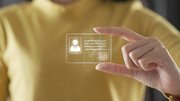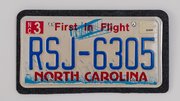News
Biometrics finding some mainstream usage
November 19, 2003
HERNDON, Va. -- A pet store here will sell puppies for cash, credit, check -- or a thumbprint.
Customers at Fox Mill Pets can make payments by placing a thumb on a fingerprint scanner at the register, according to an article in USA Today.
The scanner is connected to a computer, which analyzes the print. Because thumbprints are unique, the computer can match the print to a customer and deduct the price of the purchase from that customer's checking account.
Count this as one of the first retail applications of biometric technology, which uses physical characteristics to identify people.
Biometric devices such as fingerprint readers, retinal scanners and facial recognition systems are often part of high-tech security. But until recently, biometrics has been considered too expensive and cumbersome for everyday use.
Trials, such as Fox Mill Pets' partnership with biometrics firm BioPay, may prove otherwise. Eleven Food 4 Less stores in the Midwest and three Kroger grocery stores in Texas are trying fingerprint scanners, as are other shops.
Advocates say the technology will improve customer service. Even though customers are usually asked to provide a second form of ID, the thumbprint reader can be a minute faster than writing a check, biometric companies said in the article. And by making it easier to deduct money from a bank account, it can reduce credit card transactions, for which stores usually pay a fee.
Meta Group analyst Earl Perkins estimated the biometric market to be less than $400 million, excluding law enforcement, according to the article.
For most systems, customers must sign up, which takes about five minutes. They usually must provide their name, phone number and checking account or credit card information, and a fingerprint. The information is stored in a database. The next time customers buy something, the computer compares their print with ones in the database to find a match.
Biometric companies said they can and do keep data confidential and that their systems are safe. Yet, there are concerns regarding biometrics, including accuracy and security of personal information.
 ChatGPT
ChatGPT Grok
Grok Perplexity
Perplexity Claude
Claude










